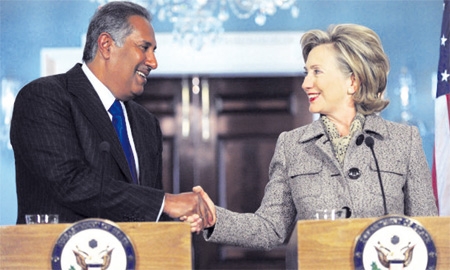Last December, the government of Qatar celebrated the state’s newly developed capacity to produce 77 million tons per annum (MTA) of liquefied natural gas (LNG), thus placing it head and shoulders above the competition. In 2002, Qatar’s annual capacity sat at just 14.9 million tons, but new trains, debottlenecking projects and millions of dollars of investment from international oil companies, such as ExxonMobil, ConocoPhillips, Shell, Chevron, and Maersk Oil, have turned what was once described by skeptics as an “economic pipedream” into a very lucrative reality.
Today, Qatar stands as a LNG powerhouse well suited to step in and offer help in times of need. A spokesperson from Qatargas recently announced that the company “stands ready to provide all the support to its long-term partners and foundation customers in Japan to meet any increased requirements for LNG at this time. Qatargas can also rely on our sister company RasGas to support Qatargas’ efforts to meet our Japanese buyers’ and partners’ needs.”
Such is Qatar’s global importance in the 21st century energy industry that it was chosen by the World Petroleum Council as the first Middle Eastern site of the WPC congress. The council cites various reasons as to why Qatar was selected to host the 2011 event, including its position as the largest LNG producer and exporter and one of the fastest growing economies in the world, as well as its modern facilities, infrastructure, hospitable people, and recent success in hosting the Asian Games.
Qatar made history in 2006 when it became the first Middle Eastern country to host the 15th annual Asian Games, Asia’s largest sporting event. And in 2022, as soccer fans around the world know, Qatar will once again be in the spotlight as the region’s first-ever site of the FIFA World Cup. The announcement by FIFA last December practically coincided with the 77 MTA celebration, making for a double red letter month.
In business, Qatar is also shining, with several companies and holdings helping to diversify the national economy. From petrochemicals to real estate, and from consumer products to Islamic and traditional finance, Qatari and regional companies are expanding the market, contributing valuable services, and reshaping the country’s skylines.
Meanwhile, the Qatar Science and Technology Park (QSTP) is home to various international companies conducting cutting-edge research and development. As Qatar is an energy powerhouse experiencing tremendous economic growth, much of what goes on at the QSTP is related to environmental sustainability in an effort to prevent the negative effects of urban and energy development.
While growth in Qatar is seemingly boundless, the government is careful to ensure that progress in both industry and business are in line with Qatar’s National Vision 2030, which emphasizes modernization while preserving tradition. The QNV 2030 focuses on the four pillars of human, social, economic and environmental development, and aims to create “an advanced society capable of sustaining its development and providing a high standard of living for all of its people.”

0 COMMENTS